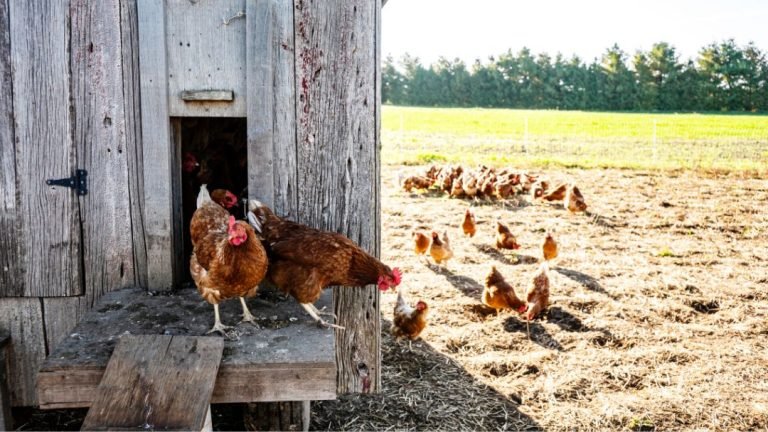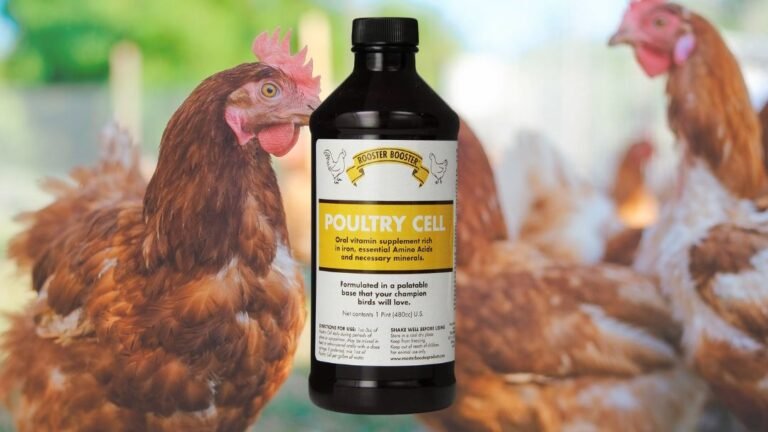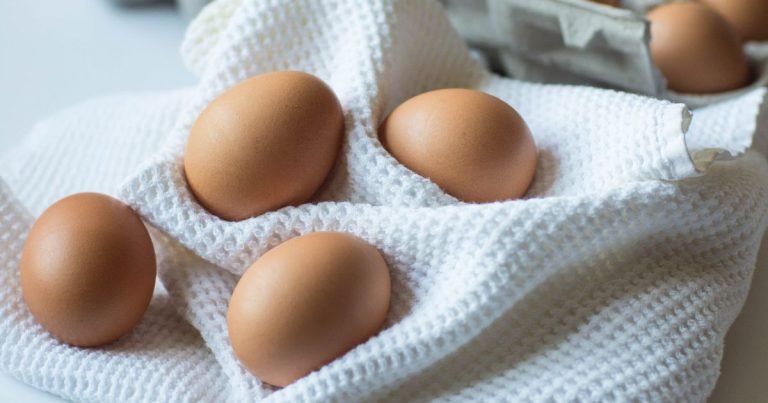No, chickens cannot eat chocolate due to its toxicity to their digestive system. Chickens should not be given chocolate as it is toxic to their digestive system.
Chocolate contains theobromine and caffeine, which can lead to various health issues and even be fatal to chickens. It can cause abnormal heart rate, muscle tremors, seizures, and ultimately death. Therefore, it is crucial for chicken owners to avoid giving any kind of chocolate to their flock.
While chickens have a diverse diet that includes insects, grains, fruits, and vegetables, chocolate should never be part of it. It is always best to stick to a balanced and appropriate diet for the well-being of the chickens.
The Dangers Of Chocolate For Chickens
Toxicity Of Chocolate For Chickens
When it comes to the diet of backyard chickens, it is essential to be mindful of what they eat to ensure their health and well-being. While these curious creatures may seem eager to devour anything in their path, it is crucial to remember that not all foods are suitable for chickens. One food item that should be strictly avoided when it comes to chickens is chocolate.
Harmful Effects Of Chocolate On Chicken Health
While chocolate is a beloved treat for humans, it poses several dangers for our feathery friends. The theobromine content in chocolate, a chemical compound that is toxic to animals, can have detrimental effects on chicken health. The theobromine found in chocolate is highly poisonous to chickens.
The harmful effects of chocolate on chickens are primarily attributed to the theobromine, which acts as a stimulant and affects the central nervous and cardiovascular systems. Chickens lack the necessary enzymes to metabolize theobromine effectively, resulting in its accumulation in their bodies. This accumulation can lead to a range of unfavorable symptoms and potential life-threatening conditions.
Here are some of the harmful effects that chocolate can have on chicken health:
- Theobromine poisoning: The theobromine in chocolate can cause poisoning in chickens, leading to symptoms such as hyperactivity, increased heart rate, restlessness, seizures, and even death. It is crucial to prioritize the safety of your chickens by keeping chocolate away from their access.
- Digestive disturbances: Chocolate contains high levels of fat and sugar, both of which can disrupt the delicate balance of a chicken’s digestive system. Consumption of chocolate can lead to diarrhea, upset stomach, and other gastrointestinal issues in chickens, making them uncomfortable and unwell.
- Obesity and nutrient imbalance: The high sugar and fat content in chocolate can contribute to excessive weight gain in chickens, leading to obesity. Additionally, consuming chocolate can also disrupt the proper absorption and utilization of essential nutrients in their diet, posing a risk to their overall health and well-being.
It is crucial to note that even small amounts of chocolate can be harmful to chickens, and it is always better to err on the side of caution when considering what treats to offer them. The well-being and safety of your chickens should always be a top priority, so remember to keep chocolate out of their reach and opt for chicken-friendly treats and snacks instead.
The Chemical Composition Of Chocolate
When it comes to feeding chickens, it’s important to be aware of the foods that are safe for them to consume. One common question that often arises is whether chickens can eat chocolate. In order to answer this question, it’s essential to understand the chemical composition of chocolate and how it can potentially affect our feathered friends.
Theobromine: A Key Compound In Chocolate
One of the primary compounds found in chocolate is theobromine. Theobromine is a natural stimulant that belongs to the class of alkaloids. It is structurally similar to caffeine, another well-known stimulant. When humans consume chocolate, theobromine has a variety of effects on our bodies. However, when it comes to chickens, this compound can have a different impact.
How Theobromine Affects Chickens
While theobromine may be a treat for us, it is important to note that chocolate and its theobromine content can be toxic to chickens. This is because chickens, unlike humans, lack the necessary enzymes to effectively metabolize theobromine. As a result, if chickens consume chocolate, the theobromine can build up in their system and lead to significant health issues.
Some potential effects of theobromine toxicity in chickens include:
- Stimulatory effects: Chickens may experience excessive stimulation of the central nervous system, which can lead to restlessness, tremors, and even seizures.
- Cardiovascular problems: Theobromine can have adverse effects on the heart and circulatory system of chickens, potentially resulting in an increased heart rate and abnormal heart rhythms.
- Gastrointestinal disturbances: Chocolate consumption can also cause digestive issues in chickens, including vomiting and diarrhea.
It is essential to keep in mind that even small amounts of chocolate can be harmful to chickens. Therefore, it is best to completely avoid feeding them this sweet treat. Instead, focus on providing your chickens with a balanced diet of nutritious foods specifically formulated for their dietary needs.
Symptoms Of Chocolate Poisoning In Chickens
It’s important to be aware of the potential dangers that certain foods can pose to our feathered friends. While chickens have a varied diet, it’s crucial to understand which foods are safe for them to consume and which should be avoided at all costs. One such food that falls under the ‘avoid’ category for chickens is chocolate. As harmless as it may seem to us humans, chocolate can be extremely toxic to our beloved chickens. In this article, we will explore the symptoms of chocolate poisoning in chickens, helping you identify any potential issues and take quick action to prevent further harm.
Signs To Look Out For
When a chicken consumes chocolate, it can result in various behavioral and physical changes. These signs act as red flags, indicating potential chocolate poisoning. By recognizing them early on, you can swiftly intervene and save your chicken from further harm. Let’s take a closer look at some of the key symptoms to be aware of:
Behavioral And Physical Changes In Chickens
When it comes to chocolate poisoning, chickens may exhibit a range of behavioral and physical changes. These can include:
- Restlessness or agitation
- Increased or irregular heartbeat
- Excessive thirst
- Abdominal discomfort or bloating
- Diarrhea or loose stools
- Tremors or muscle spasms
- Incoordination or difficulty walking
- Seizures
In addition to these observable changes, it’s essential to pay attention to your chicken’s reaction to external stimuli. They may become hypersensitive to light, sound, or touch, indicating an abnormal neurological response caused by chocolate consumption. Moreover, chickens may display a decrease in egg production or completely stop laying eggs when exposed to chocolate poisoning.
Important: If you suspect that your chicken has ingested chocolate or is showing any of these symptoms, it’s crucial to contact a veterinarian immediately for professional guidance and treatment options. Time is of the essence in such cases, and swift action can make a significant difference in your chicken’s recovery.
Understanding and recognizing the symptoms of chocolate poisoning in chickens is fundamental to their well-being. By being vigilant and acting promptly, you can help prevent further harm and ensure your feathered friends remain happy and healthy.
Treatment And Preventive Measures
Once you discover that your feathered friend has indulged in a chocolatey treat, it is vital to take swift action to ensure their safety and well-being. In this section, we will discuss what steps to take if your chicken consumes chocolate and also provide preventive measures to avoid such situations in the future.What To Do If Your Chicken Consumes Chocolate
If you catch your chicken gobbling up a chocolate morsel, don’t panic. While chocolate is harmful to chickens, prompt action can minimize the potential risks. Following these steps will help you address the situation effectively:- Remove the chocolate: Firstly, remove any remaining chocolate from your chicken’s access. Check the coop, run, or any areas where they may have dropped or hidden chocolate pieces.
- Contact a veterinarian: Reach out to a knowledgeable veterinarian who can provide professional advice on how to manage your chicken’s chocolate consumption. They might recommend further steps based on their evaluation.
- Monitor your chicken for symptoms: Keep a close eye on your chicken for any signs of chocolate toxicity, such as increased heart rate, restlessness, tremors, or seizures. If you observe any unusual behavior, notify your veterinarian immediately.
- Offer plenty of fresh water: Chocolate can be dehydrating, so ensure your chicken has access to fresh and clean water to stay hydrated.
- Provide a balanced diet: To support your chicken’s overall health, offer a well-balanced diet consisting of suitable chicken feed and appropriate treats. This can help counteract any potential nutrient deficiencies caused by the chocolate consumption.
Steps To Prevent Chocolate Consumption In Chickens
Preventing chocolate consumption in chickens is the best approach. By implementing these preventive measures, you can create a safer environment for your feathered companions:- Secure chocolate storage: Store all chocolate products in sealed containers and ensure they are kept in areas that are inaccessible to chickens. This will prevent accidental ingestion and keep your chickens safe.
- Educate family members and visitors: Inform everyone in your household and any visitors about the dangers of chocolate for chickens. Educating them about the risks is crucial in averting any unintentional feeding of chocolate to your poultry.
- Dispose of chocolate waste responsibly: When disposing of chocolate wrappers or other remnants, make sure they are out of reach for chickens. This will eliminate any temptation and subsequently reduce the chances of ingestion.
- Provide suitable alternative treats: Instead of chocolate, offer your chickens healthy and chicken-friendly treats such as fresh fruits, vegetables, or mealworms. This will satisfy their urge for treats without exposing them to any harmful substances.
- Regular coop and run inspections: Routinely inspect your chicken coop and run to ensure no chocolate or potential hazards are present. By maintaining a clean and safe environment, you can mitigate the likelihood of accidental chocolate consumption.
Safe Treats For Chickens
Safe Treats for ChickensWhen it comes to taking care of your backyard chickens, providing them with a balanced diet is of utmost importance. While chickens are primarily fed on grains, it is natural for chicken owners to wonder if they can treat their feathered friends to other foods. One common question that arises is whether chickens can eat chocolate. In this article, we will explore the topic of safe treats for chickens, including alternative snacks and nutritious choices to keep your flock healthy.Alternative Snacks for ChickensWhile chickens can enjoy a variety of treats, it is essential to remember that not all human foods are suitable for them. Chocolate, in particular, should be avoided. Chocolate contains theobromine, a substance that is toxic to chickens. Even small amounts of chocolate can lead to serious health issues and, in severe cases, can be fatal for your birds. To ensure the well-being of your flock, it is best to keep chocolate out of their reach and opt for safer alternatives.Nutritious Treats to Keep Your Flock HealthyFortunately, there are many nutritious treats that you can offer your chickens to vary their diet and keep them happy. These treats not only provide entertainment but also offer additional nutrients. Here are some safe and healthy choices for your flock:1. Fruits and Vegetables: Chickens love fresh fruits and vegetables. Apples, strawberries, blueberries, watermelon, carrots, and leafy greens are all excellent options. Slice or chop them into bite-sized pieces and watch as your chickens eagerly peck at these colorful treats.2. Grains and Seeds: Grains and seeds are a great source of energy for chickens. You can offer them cooked rice, oats, barley, and quinoa. Additionally, sunflower seeds and pumpkin seeds make for tasty and nutritious snacks.3. Protein Boosters: Chickens require protein to stay healthy, and certain foods can provide them with a protein boost. Mealworms, earthworms, and small insects are highly appreciated by chickens. You can also consider offering cooked eggs, along with their shells which are a great source of calcium.4. Herbs and Greens: Including herbs and greens in your chickens’ diet not only adds variety but also offers additional health benefits. Fresh parsley, basil, mint, and dandelion leaves can be given to your chickens in small quantities. These greens are packed with essential vitamins and are known to have antioxidant properties.Remember, treats should only make up a small portion of your chickens’ diet. The majority of their nutrition should come from a balanced feed specifically formulated for them. Offering treats in moderation ensures that your chickens receive a well-rounded diet while enjoying some tasty and safe snacks.In conclusion, while chickens cannot eat chocolate, there are numerous safe and nutritious treats you can offer to your feathered friends. These treats not only provide additional nutrients but also keep your flock entertained and happy. By choosing the right treats, you can supplement your chickens’ diet and ensure their overall health and well-being. So go ahead and spoil your chickens with treats that are suitable for them – they will surely appreciate it!Conclusion
To sum up, it is crucial to avoid feeding chickens with chocolate due to its harmful effects on their health. Chocolate contains theobromine, which is toxic to chickens and can lead to serious complications. Stick to feeding your chickens a balanced diet that includes their natural food sources to ensure their well-being.
Remember, the health of your chickens should always be a top priority.




